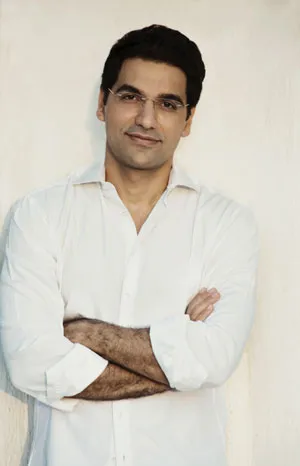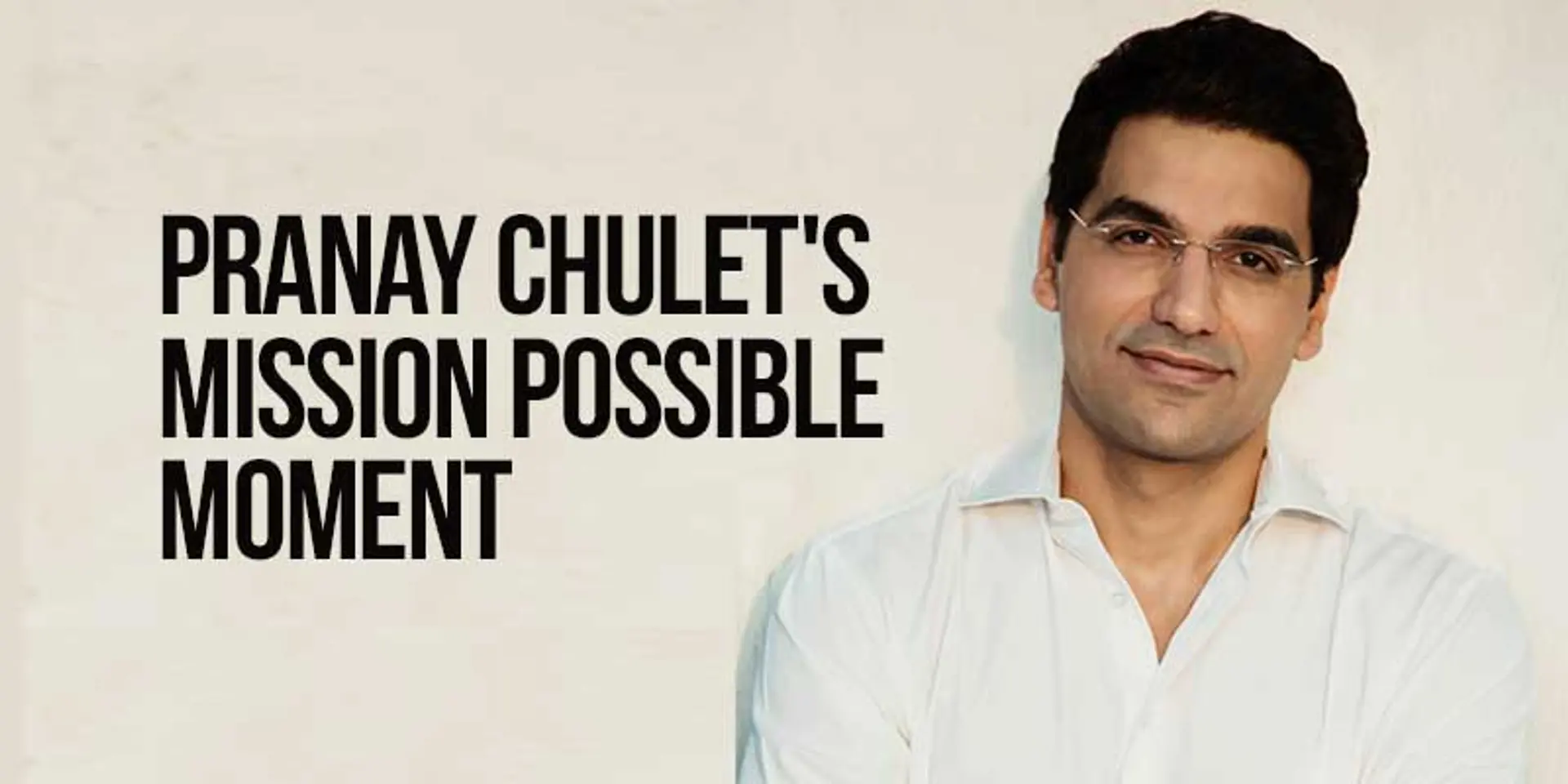The secret that Quikr’s Pranay Chulet hid from the world
No, it is not about acquiring an online real estate startup. That is an open secret now. Everyone knows it. All that remains is a formal announcement, or so the careless whispers seem to suggest.

Neither is it about Quikr’s profitability. “Profitability is a good thing to have in my view,” he says with a smile. “We don’t have it yet. I think maybe in one-and-a-half years to two years. That’s my estimate. You cannot time these things.”
So is it about funding? “By God’s grace we have enough money in the kitty now. We are very focused on building our verticals,” remarks Pranay, whose Quikr is valued at $1 billion. In fact, nor does the secret pertain to Quikr’s recent shift from Mumbai to Bengaluru. The only reason, informs Pranay, they moved was so that they could have access to good talent.
Mission possible
The secret that Pranay hid from the world dates back to the time when Quikr came about. Yes, we all know Quikr was inspired by Craigslist, the California-based classified advertising site. But it was not as if one fine day Pranay woke up and said I am going to build India’s Craigslist.
The idea rather developed when Pranay found himself immersed in the shenanigans of a secret anti-terrorist group comprising 30 fighters across different nationalities. Though not on the lines of Tom Cruise’s ‘Mission Impossible’, Pranay’s interactive movie-game written and directed by him is high adrenaline. He gave a sneak peek of the film to the audience at the INKTalks stage recently.
“Yes, I am an entrepreneur at heart. But I am more of a creator. Creativity is something I enjoy a lot,” he says about what drives him.
This was an ambitious project that Pranay took up when he was in the US working as a management consultant in a media company. “It was around 2005 when media companies were struggling with the Internet thing,” he says. There was a particular client who was talking about starting a gaming studio. But for a movie studio to do gaming was like changing the DNA of the company. It was not an easy thing to do. “But somehow the idea came to me. I knew filmmaking, and thought what if we could make a movie that can also be played as a game?”
But Pranay, a fan of Martin Scorsese (think ‘Goodfellas’) and Robert De Niro, wanted his game to be a real action film and not animated. “The idea was to make a film which was also a video game. And then I had what I call the ‘Oh! shit, now what’ moment.” Though Pranay had learnt filmmaking, he had no background in this business. “I was in a country where I did not know anyone. But what I learnt was that all good things in life take more time and money than you think, but it is all worth it at the end,” he says.
Pranay had an ambitious script, which he wrote himself. He also directed the movie. But there was a problem. How was he going to cast people for the 30 different characters that too belonging to different nationalities? “I started posting ads on Craigslist. Within a week, I was able to audition 200 actors. Similarly, he also posted ads for the film crew. “This showed that a platform like this has a lot of value in the world,” he says.
For the film, Pranay even shot in Delhi. “It was a fun way to learn the power of the platform,” he reiterates. The movie is an interactive game but not in the sense that you can control the fate of the protagonist and how the story will move ahead. Rather, in Pranay’s movie-game one can take on the persona of a team member of the anti-terror squad and be part of the movie.
The project took six months of Pranay’s life, but he has never spoken about this publicly ever.
Life comes full circle
Talking to YourStory, Pranay says in a week or two he will be announcing the acquisition of a media entertainment company. “The idea for Quikr came from a totally unrelated area. We are likely to make an investment in an entertainment marketplace and life will come full circle,” he tells me.
With his easy charm, Pranay cleverly dodges the question about CommonFloor acquisition to a bunch of eager journalists at a roundtable on the sidelines of the conference. “We’ve done small acqui-hires and done small investments, and are looking at multiple acquisitions. But at the moment, we are not looking at CommonFloor,” he says.
According to him, there are two ways of growing a company. “You can grow it by building it yourself which is a valid option for us. We have five verticals -- Quikr C2C payments and logistics, Quikr Jobs, Quikr Services, Quikr Film, and Quikr Cars -- and we’ll stay with these five. Within these, we already had a running sizeable business so we don’t need to acquire to get into a new area. Thus, our dependence on acquisitions is relatively low. You know our name is Quikr and we try to stay true to that value and try to move fast. If I feel some acquisition will help us materially increase our speed in becoming bigger in the space, we’ll look at it.”
Quoting the legendary Warren Buffet, Pranay adds, “‘Good assets at a good price.’ So not bad assets at a bad price. Good assets at a very high price are also not worth it because we have a business.”
Interestingly, Pranay reveals that they will be getting ready with a TV campaign for their Quikr Homes soon.
Quick and steady wins the race
In terms of revenue, Quikr Homes and Services are far bigger, while Quikr Jobs is growing fast. He says, “Cars, in general, is a low revenue category except you can generate revenue from OEMs, that’s easy money, but it doesn’t scale beyond a point. I see Quikr Cars climbing but over a period of time.” If you see in terms of listings, Quikr Homes, C2C, and Cars are very large for Quikr, and in terms of responses C2C, Jobs, and Cars are big.
According to him, the fun has just started in terms of innovations in the e-commerce space. “We are very different from other markets. We are mobile dependent. There is no question that as we go more and more mobile (internet) as a country, we will see new models we cannot imagine today. I am positive there will be more innovation in this. We’ll see some big things in wearable computing, online security, home automation, and more.”
Commenting on the competition in the services sector, Pranay believes that it is a hard problem to crack at a small scale. “We did not go deep in the service sector till we grew to a certain size. Services are a very fuzzy thing. There are different quality levels which will have different price points, so if you are a small startup, trying to solve the service marketplace is really tough. I know there are 50 odd startups which have been funded in the last one year in this space because it is now fashionable to say that ‘we will be the Uber of this and that,’ but I don’t think it is easy to standardise in this area.”
When a company starts growing very fast it becomes hard to maintain the same level of quality that one had as a small team and company, believes Pranay. “I think some people go wrong there. They get so intoxicated with just the number-driven growth that they do not look at the user’s experience. We just stayed true to the cause.” Perhaps, the secret is to be quick but not fast!







